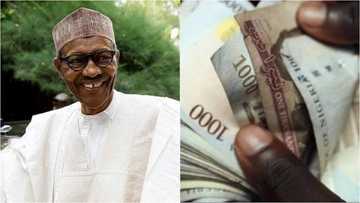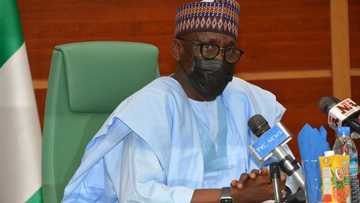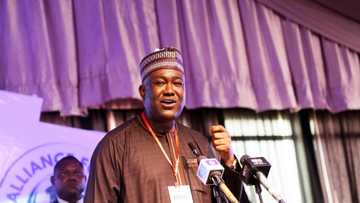Rising Debt: Apapa Port Will Generate N20bn Daily if Efficient, Says Agbakoba
- Ahead of the 2023 general elections, a national economic dialogue has been held to critically analyze some of the obstacles of Nigeria's economy
- Issues such as non-inclusive economic growth, macroeconomic instability, and infrastructure deficit, human capital deficit has been cited as problem to national growth
- With the help of the Nigeria Economic Summit Group (NESG) authorities were gathered together to deliberate on these problems
PAY ATTENTION: Click “See First” under the “Following” tab to see Legit.ng News on your Facebook News Feed!
FCT, Abuja - Former president of the Nigerian Bar Association (NBA) Dr. Olisa Agbakoba (SAN) said the Apapa Port in Lagos state has the potential to generate N20bn daily if it were efficient.
The learned silk made this known on Friday, May 20 in Abuja at a national economic dialogue attended by Legit.ng's regional reporter.
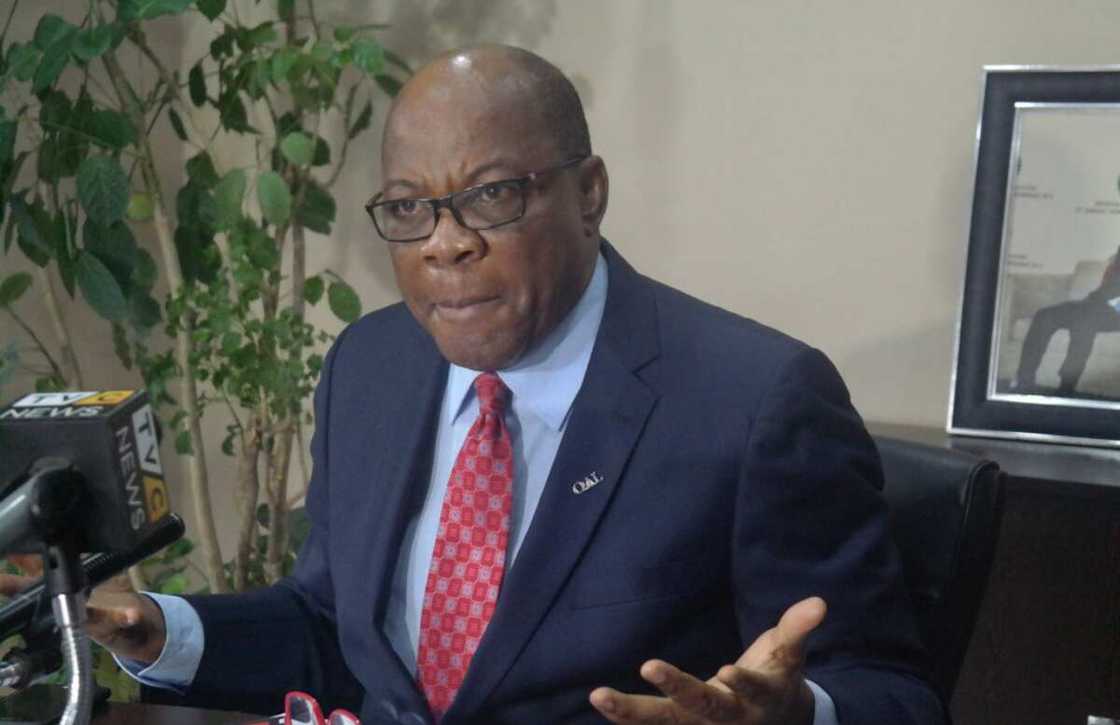
Source: Twitter
Speaking at the conference with the theme; "critical challenges confronting the Nigerian economy" the senior advocate said of the six ports in Nigeria only two were in operation.
He said the potentiality of the Apapa Port can generate the country enormous revenue generation which can wipe off its debt within a short period.
PAY ATTENTION: Follow us on Instagram - get the most important news directly in your favourite app!
Agbakoba berated the N17.trn earmarked by the federal government as the national budget describing it as "nothing"
He said:
"We are not broke, we've got N17trn that is nothing for a national budget. My industry (the maritime sector) is completely omitted from the national development planning, yet just Apapa port, if it were efficient it will generate N20bn a day equal to N7.3trn a year that wipes out the so-called deficit."
In his reaction to the build-up to the 2023 presidential polls he said there can be no Nigerian dream without a visionary president.
Govt should be critical about where to spend - IMF
Also speaking at the event as a panelist the resident representative of the International Monetary Fund (IMF) Mr. Ari Aisen outlined some key steps the Nigerian government can adopt to wipe out deficits.
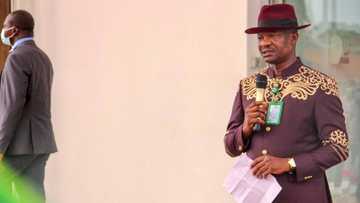
Read also
IPOB: Delta places security agencies on red alert, approves international conference centre
He stated that the Nigerian government should be critical about where it spends money and mindful of spending that is not well-targeted.
Aisen cited the fuel subsidy saga as a classical example stating that the system does not benefit the poor or their welfare.
He said:
“What is very critical is knowing what kind of spending needs to be part of the government? what kind of signaling in terms of pricing does everyone involved need? And what kind of business environment need to be put in place for the private sector to be the engine for growth while the public sector with the division of labour will be able to provide goods and tax appropriately.
“You need to have more revenue to be able to service your debt. At the same time, you need more revenue to be able to produce and provide public goods."
In his remark, the chairman, Nigeria Economic Summit Group (NESG), Mr. Asue Ighodalo stated that the forthcoming general elections will be a defining moment in determining the future of the country.
While stating our critical the next poll will be to Nigeria and Nigerians, he disclosed that Nigeria is suffering some critical challenges that has held the economy of the nation captive.
Ighodalo cited issues like non-inclusive economic growth, macroeconomic instability, infrastructure deficit, human capital deficit, skills gap, national insecurity and weak economic competitiveness.
He said:
"We are at a significant crossroad. This is a moment in our national history where we need political leaders to emerge who think globally, and act locally to tackle seemingly interactable development problems."
Report shows Nigeria debt profile is Over N50tn, not N39tn
Recall that Legit.ng had earlier reported that the federal government through the DMO released details of its borrowing plans for the next three months.
The money will be borrowed in the form of savings bonds, with a full maturity date of January 2042.
Nigeria's debt profile has risen to N39 trillion, according to the Debt Management Office, but a new report from an economic group suggests it might be beyond N50 trillion.
Odinkalu: Nigeria's public debt profile has tripled in 7 years
Similarly, rights activist, Chidi Odinkalu,has said Nigeria’s debt profile has increased three times in the last seven years since Muhammadu Buhari mounted the saddle as Nigeria’s president.
Odinkalu said this in a tweet but did not expatiate as he only provided an undated chat from the Nigeria Bureau of Statistics (NBS).
Odinkalu may not be an economist but available data from Debt Management Office (DMO) says Nigeria’s debt profile has soared to about N35.65 trillion recently because of increased borrowing by Buhari's government.
Source: Legit.ng


